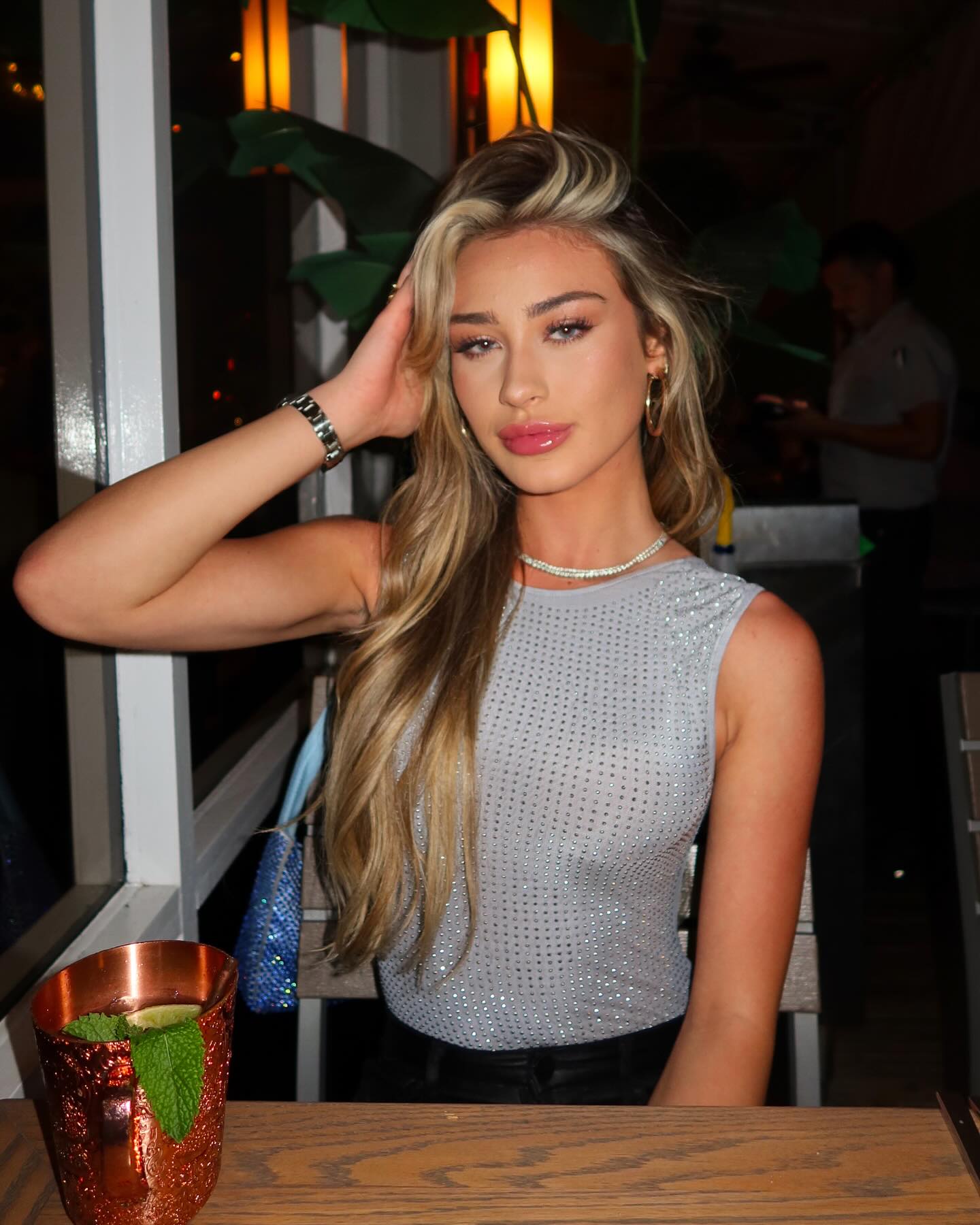What drives the fascination surrounding McKinley Richardson's leaked content? The digital age has birthed an era where private information and media can rapidly transform into public spectacle. In this context, McKinley Richardson’s name has become a lightning rod for discussions about privacy, consent, and the boundaries of digital sharing. Her presence in cyberspace is no longer confined to her creative endeavors but now extends into debates over ethical considerations tied to leaks.
The mystique surrounding McKinley Richardson is not merely about the content itself; it delves deeper into societal norms regarding privacy invasion. As fans and observers dissect every detail, they uncover layers of complexity intertwined with modern-day technology use. This situation underscores how easily personal creations can spiral beyond intended audiences when mishandled or maliciously distributed online. Such incidents raise crucial questions about accountability within digital ecosystems while simultaneously highlighting vulnerabilities faced by creators worldwide.
| Bio Data & Personal Information | Career & Professional Information |
|---|---|
| Name: McKinley Richardson | Profession: Content Creator, Social Media Influencer |
| Date of Birth: [Not Publicly Disclosed] | Platforms Active On: TikTok, Instagram, OnlyFans |
| Place of Birth: [Details Unavailable] | Notable Achievements: Amassed millions of followers through engaging content |
| Residence: [Private Information] | Controversies: Nude leaks and associated media coverage |
| Reference: For more authentic details, visit Social Media Today. | |
In recent years, McKinley Richardson has emerged as a prominent figure in the world of social media influencers. Known for her relatable content and unique style, she quickly amassed a significant following across platforms like TikTok and Instagram. However, the controversy surrounding her leaked content has overshadowed much of her professional achievements. While some argue that these leaks have inadvertently boosted her visibility, others express concern over the ethical implications of distributing such material without consent.
McKinley Richardson’s journey into the spotlight began with short, impactful videos that resonated deeply with younger audiences. Her ability to connect authentically contributed significantly to her popularity. Yet, the leak of her private content has shifted focus from her talent to the breach of privacy involved. This incident highlights broader issues concerning the protection of creators' rights and the responsibilities held by both individuals and platforms in safeguarding personal data.
As discussions around McKinley Richardson continue, one cannot ignore the role played by societal attitudes toward privacy and consent. In today’s interconnected world, where information spreads at unprecedented speeds, maintaining control over one's digital footprint becomes increasingly challenging. The case of McKinley Richardson serves as a poignant reminder of the potential consequences faced by those whose private lives are thrust into the public domain against their will.
Furthermore, the phenomenon of leaks involving high-profile personalities raises important questions about the future of digital security measures. With advancements in technology outpacing regulatory frameworks, there exists a pressing need for comprehensive policies addressing data breaches and unauthorized dissemination of personal content. Platforms must prioritize user safety by implementing robust safeguards designed to protect creators from exploitation.
Despite the negative attention garnered by the leaks, McKinley Richardson remains steadfast in pursuing her passion for content creation. She continues to engage with her audience, fostering connections rooted in authenticity and mutual respect. Her resilience in the face of adversity exemplifies the strength required to navigate the complexities of life in the public eye. By focusing on positive interactions and meaningful contributions, Richardson strives to redefine her narrative amidst ongoing scrutiny.
For many, the allure of McKinley Richardson lies not only in her captivating content but also in her capacity to inspire others through shared experiences. Even amidst challenges posed by unwanted exposure, she maintains a commitment to empowering her followers. Through educational initiatives and community outreach programs, she aims to promote awareness about digital literacy and responsible online behavior.
Ultimately, the story of McKinley Richardson transcends mere headlines about leaks and controversies. It represents a larger conversation about the evolving dynamics between creators, consumers, and technological advancements. As society grapples with balancing innovation with ethical considerations, cases like hers underscore the importance of fostering environments where creativity can flourish without fear of exploitation. By addressing underlying issues related to privacy and consent, stakeholders can work towards building safer spaces for everyone participating in the digital realm.
While the specifics of McKinley Richardson's situation remain complex, it offers valuable insights into navigating the intricacies of modern-day fame. As we move forward, prioritizing education, empathy, and collaboration will be essential in shaping a future where all individuals feel empowered to share their stories safely and confidently.
Government announcements supporting tech startups highlight another dimension of this discussion. Policies aimed at encouraging innovation often intersect with concerns over data protection and individual rights. Striking a balance between fostering growth and ensuring security requires thoughtful consideration from policymakers, industry leaders, and citizens alike. Together, they must strive to create systems capable of adapting to rapid changes while safeguarding fundamental principles of privacy and consent.
Looking ahead, the legacy of McKinley Richardson may extend beyond her immediate circumstances. Her experiences could inform future strategies for protecting creators' interests and promoting healthier interactions within digital communities. By learning from past mistakes and embracing proactive approaches, stakeholders can contribute positively to the ever-evolving landscape of online engagement.
Through continued dialogue and action, society has an opportunity to redefine its relationship with technology in ways that honor human dignity and foster trust. As individuals and organizations come together to address challenges posed by leaks and similar incidents, they pave the way for a brighter, more inclusive digital future—one where creativity thrives alongside respect for personal boundaries.



